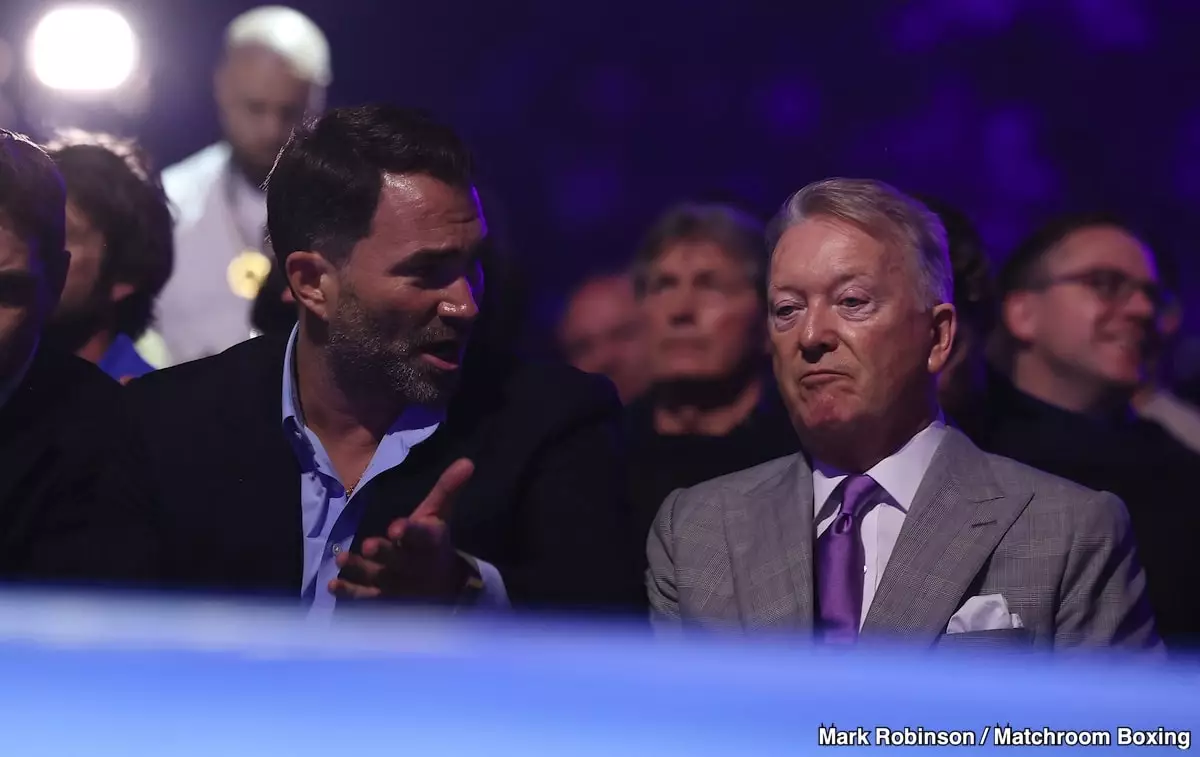In the ever-evolving world of boxing, decisions regarding matchups are often as complex as the sport itself. Recently, Frank Warren, the influential promoter behind rising heavyweight star Moses Itauma, has experienced a notable change of heart about pitting Itauma against Martin Bakole. Initially, Warren expressed interest in facilitating a bout for the 20-year-old southpaw with Bakole, perceiving it as an opportunity for valuable experience. However, in light of Bakole’s recent performances, Warren’s enthusiasm has transformed into frustration.
Warren’s latest remarks underline a critical shift in his perception; he is now adamant that Bakole must first prove his worth before entering the ring with Itauma. The impatience displayed by Warren reflects not just his management style but highlights broader business strategies in boxing. Rather than blindly matching fighters, promoters are increasingly taking calculated risks based on performance records and marketability.
The Impacts of Performance on Promotional Decisions
Bakole, who holds a record of 21 wins, 2 losses, and 1 draw, has recently struggled to maintain his once-prominent position in the heavyweight rankings. Warren emphasized Bakole’s lackluster showings in his last two outings, where he garnered a questionable draw against Efe Ajagba and faced a harsh defeat courtesy of Joseph Parker. Such performances have raised doubts not only about Bakole’s ability but also about whether he is deserving of a high-stakes matchup with a prospect as lauded as Itauma, whose own record stands at a pristine 12-0 with 10 knockouts.
The boxing community often hangs on the balance of recent fights; an athlete’s trajectory is shaped not just by skills but also by their ability to consistently perform under pressure. For Bakole, revitalizing his career may now hinge on a comeback performance, ideally against formidable opponents like Ajagba or Parker. Such a win could rejuvenate his public persona, making him once again a contender for lucrative fights.
Moses Itauma: The Future of Heavyweight Boxing
At only 20 years of age, Itauma is already hailed as one of the brightest prospects in the heavyweight division. Observers note a marked contrast between his potential and Bakole’s present uncertainty. This generational divide speaks volumes about the velocity of career trajectories in boxing: while some fighters seem to hit their peak early, others may struggle to recapture their past glories. For Warren, the challenge lies in not just promoting a fighter but ensuring that the opponent aligns with both market demands and competitive merit.
As Itauma continues to enhance his skills, potential matchups are swirling about, including names like Otto Wallin, Jermain Franklin, and perhaps even the more challenging Filip Hrgovic or Zhilei Zhang. Each of these fighters presents a unique set of challenges, and it is essential for Itauma’s development to navigate them effectively.
In sum, the boxing landscape is not simply a series of fights but an intricate dance of strategy, promotion, and performance. Warren’s evolving stance on Bakole outlines the pressures promoters face in guiding their athletes’ careers. With Itauma poised to capture the spotlight, the decisions made in the ring are as vital as the skills displayed in it.

